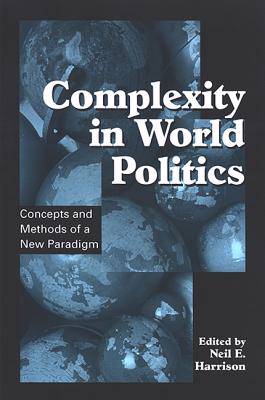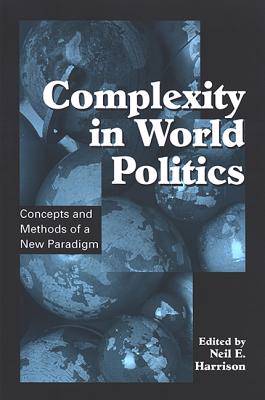
- Afhalen na 1 uur in een winkel met voorraad
- Gratis thuislevering in België vanaf € 30
- Ruim aanbod met 7 miljoen producten
- Afhalen na 1 uur in een winkel met voorraad
- Gratis thuislevering in België vanaf € 30
- Ruim aanbod met 7 miljoen producten
Zoeken
Complexity in World Politics
Concepts and Methods of a New Paradigm
€ 145,45
+ 290 punten
Omschrijving
Despite one hundred years of theorizing, scholars and practitioners alike are constantly surprised by international and global political events. The collapse of communism in Europe, the 1997 Asian financial crisis, and 9/11 have demonstrated the inadequacy of current models that depict world politics as a simple, mechanical system. Complexity in World Politics shows how conventional theories oversimplify reality and illustrates how concepts drawn from complexity science can be adapted to increase our understanding of world politics and improve policy. In language free of jargon, the book's distinguished contributors explain and illustrate a complexity paradigm of world politics and define its central concepts. They show how these concepts can improve conventional models as well as generate new ideas, hypotheses, and empirical approaches, and conclude by outlining an agenda of theoretical development and empirical research to create and test complex systems theories of issue-areas of world politics.
Specificaties
Betrokkenen
- Uitgeverij:
Inhoud
- Aantal bladzijden:
- 213
- Taal:
- Engels
- Reeks:
Eigenschappen
- Productcode (EAN):
- 9780791468074
- Verschijningsdatum:
- 8/06/2006
- Uitvoering:
- Hardcover
- Formaat:
- Ongenaaid / garenloos gebonden
- Afmetingen:
- 161 mm x 231 mm
- Gewicht:
- 421 g

Alleen bij Standaard Boekhandel
+ 290 punten op je klantenkaart van Standaard Boekhandel
Beoordelingen
We publiceren alleen reviews die voldoen aan de voorwaarden voor reviews. Bekijk onze voorwaarden voor reviews.










